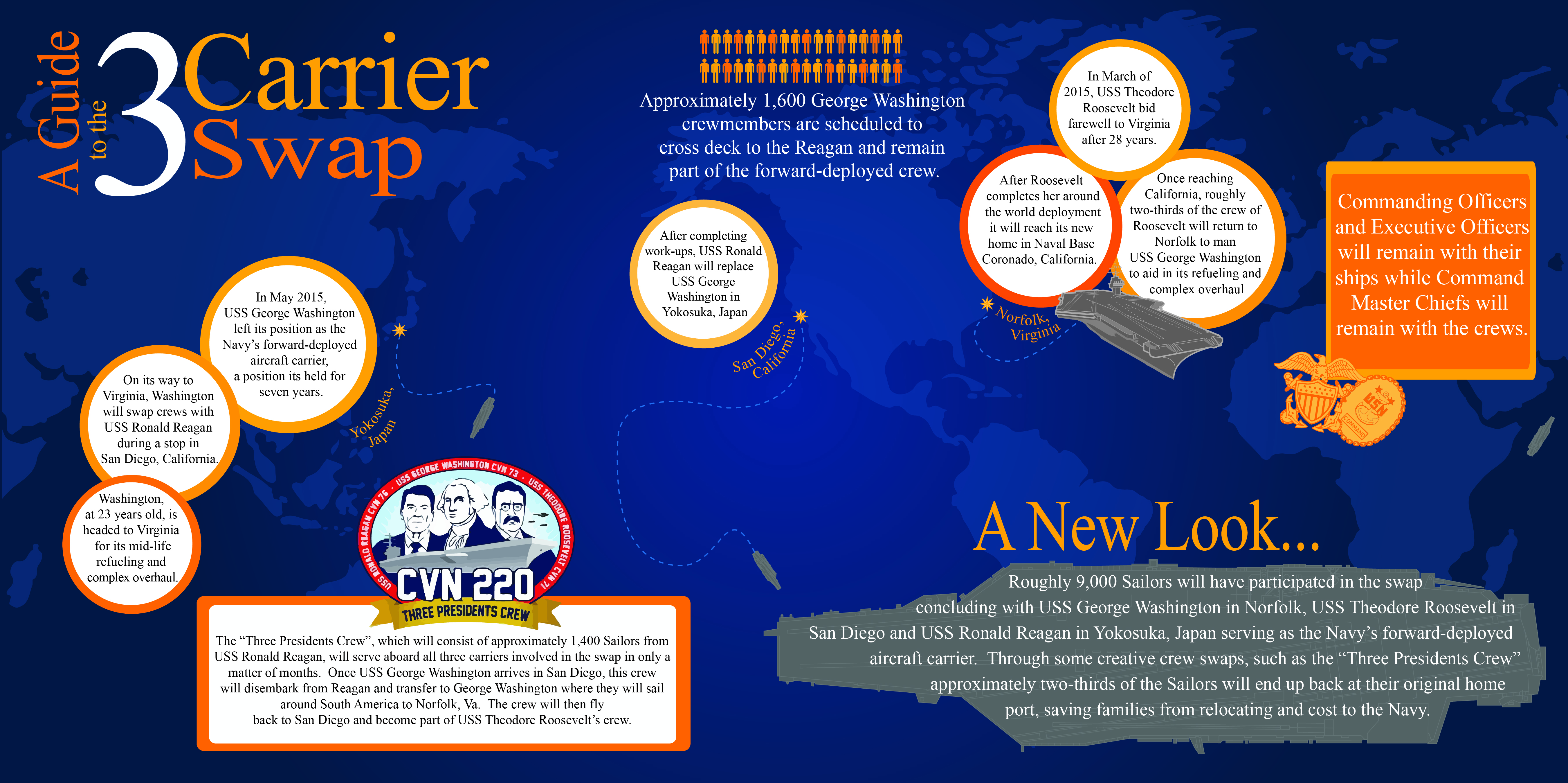
Later today Nimitz-class carrier USS Ronald Reagan (CVN-76) will depart San Diego, Calif. for its new home in Yokosuka, Japan.
Reagan’s California departure and its arrival in Japan as U.S. 7th Fleet’s forward deployed carrier is the second move in a three-way carrier swap that will move USS George Washington (CVN-73) to Newport News, Va. for a mid-life overhaul and change the homeport of USS Theodore Roosevelt (CVN-71) — currently in U.S. Central Command (CENTCOM) — from Naval Station Norfolk, Va. to San Diego.
Reagan and Washington conducted a 10-day crew swap when Washington arrived in San Diego earlier in August after being in Japan since 2008 as the U.S. forward deployed carrier.
Reagan has operated extensively in the Pacific, including responding to the aftermath of the 2011 tsunami in Japan.
“We are sending our most modern West Coast-based aircraft carrier to support the security, stability and prosperity of the Indo-Asia-Pacific region and our allies,” said Vice Adm. Mike Shoemaker, Commander, Naval Air Forces, said in a Monday statement.
“The strong ties that were established between ship and host nation over four years ago will continue.”
Most of Regan’s crew, however, will stay in California and most of the former crew of Washington will take the carrier back to Japan.

When Roosevelt arrives at its new California homeport it will be manned by most of the original Reagan crew, while Roosevelt crew will take Washington to Virginia for its refueling and complex overhaul (RCOH) at Newport News Shipbuilding in Virginia.
The ongoing carrier dance is designed to cost effectively facilitate the carrier moves without relocating wide swaths of the crew from Norfolk to San Diego and from San Diego to Japan.
“Approximately two-thirds of each crew will remain in their original homeport while one-third will remain with their ship, including reactor department personnel and aircraft carrier commanding officers, executive officers and command master chiefs,” read a Navy statement.
According to estimates from the Navy, the swap will save the service about $41 million in moving expenses.





